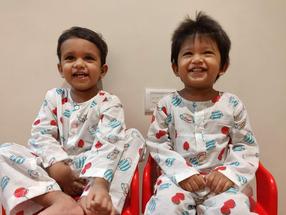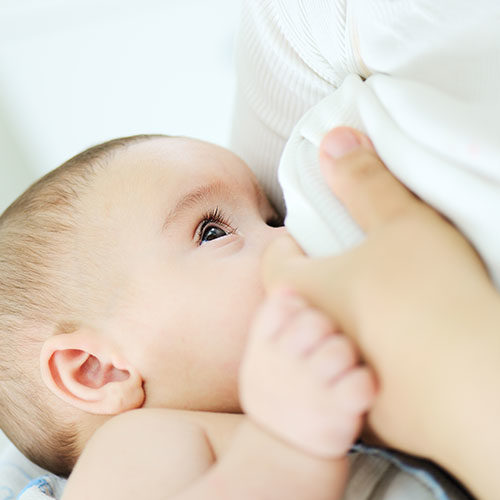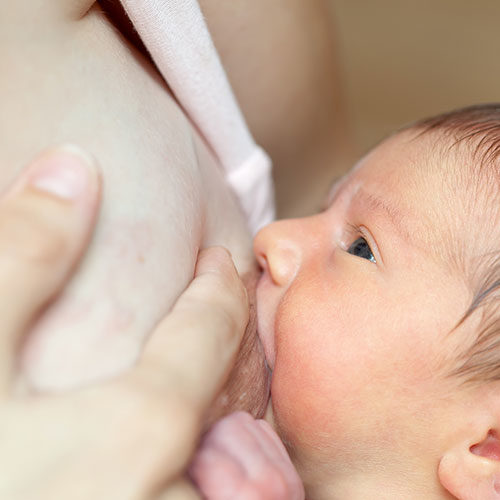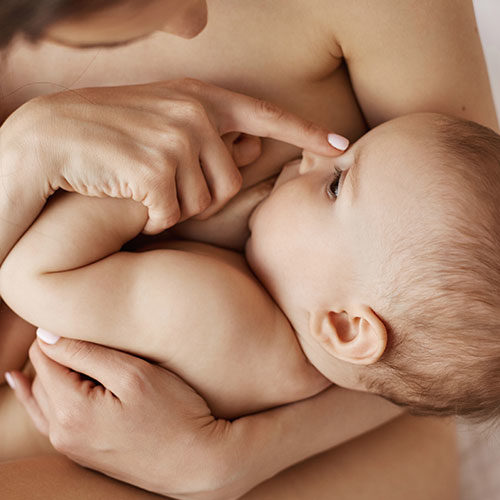Does breastfeeding cause dental carries in Infants and Toddlers?
A lot of women are advised to stop breastfeeding on the pretext of breast milk leading to tooth decay and dental cavities. If we talk about India, the vast majority don’t go to dentists for routine checkups. Thus, the interesting thing is that – the women who are advised to stop breastfeeding, are the ones who visit dentists for the poor dental health of their babies. There are plenty of other breastfeeding women who don’t take their babies to visit a dentist because their babies do not have any dental issues. This observation, at the least, indicates that breastfeeding is not a sureshot reason to cause dental issues. Because if it was, every baby would need dental treatment.
Rising above the layperson’s point of view, let’s consider the view of an anthropologist (quoted by Dr. Brian Palmer) – “If breastmilk caused decay – evolution would have selected against it. It would be evolutionary suicide for breastmilk to cause decay.”
Archaeological Studies
The research done on the teeth of the human skulls found in archaeological studies reveals that there was hardly any decay. Also, in ancient times, there weren’t any breast milk substitutes. And babies breastfed until way into toddlerhood. The breast milk was and is the same since then. What has changed is the diet of humans.
How does decay occur?
Tooth decay essentially takes place due to the presence of bacteria called S. Mutans. These bacteria use the sugar from the food to produce acid. This acid causes decay. S. Mutans thrive in 3 conditions –
- High sugar
- Low amount of Saliva (Dry Mouth)
- Low pH levels in Saliva
How does Breast Milk provide protection against decay?
- Antibodies in breast milk helps in reducing the growth of bacteria in the mouth.
- Human milk has high pH levels inhibiting cavity formations.
- Breast milk has sugar – Lactose. Research has predicted that S. Mutans may not use lactose as easily as ‘Sucrose’ which is found in some formulas.
- Lactoferrin, an active component present in breast milk, kills S. Mutans.
- Breast milk deposits calcium and phosphorus on the teeth and strengthens them.
- Saliva is produced less at night. Babies who wake up for night nursing continue to produce saliva, which prevents dry mouth and restores pH levels.
Direct Breastfeeding v/s Bottle Feeding
A very important factor to consider is the method with which a baby is fed. Direct breastfeeding and bottle feeding work completely differently.
- While breastfeeding, the nipple is elongated and releases milk directly into the baby’s throat. Whereas a bottle drips milk in a baby’s mouth and comes in contact with the teeth.
- Breast doesn’t release milk unless suckled at. Whereas a bottle drips tiny droplets of milk even if the baby doesn’t suck. If a baby falls asleep, milk pools in her mouth in case of bottle feeding.
Therefore, direct breastfeeding is much better for oral health as opposed to bottle feeding. Direct breastfeeding also enables optimal jaw development.
What does the research say?
There has been some research that found decay in babies who received breast milk between 6-24 months of age. The data showed an increase in the percentage of babies suffering from decay if they received breast milk beyond 2 years of age. However, what the research failed to observe was that these babies received breast milk through bottles. And half the babies had also received formula along with breast milk.
Another research finding decay in breastfed babies (beyond 12 months) failed to make the socio-economic background and the high sugar intake of its sample.
Some other research has found that –
- Breastfeeding up to 12 months protects against decay.
- Risk of tooth decay is not linked to breastfeeding beyond 12 months.
- The only factors associated with tooth decay were high intake of sugary foods/drinks and low socioeconomic status.
Factors contributing to Poor Dental Health
- S. Mutans entering the baby’s mouth from other people. E.g. parents, caregivers, siblings can pass these onto the baby by kissing, sharing spoons, glasses, toothbrush etc.
- Consumption of food with high levels of sugar. E.g. biscuits, other fried junk food, sugary drinks etc.
- Poor oral hygiene. E.g. Not brushing the teeth twice a day, not cleaning the mouth after eating/drinking etc.
- Poor dietary habits of the family
- Genetics can predispose some babies to have poorer dental health.
- Lack of saliva due to conditions like asthma, diabetes etc.
- Use of certain medicines can reduce the saliva flow in the mouth. E.g. antihistamines, benzodiazepines, medicines for asthma, nausea and vomiting etc.
- Maternal smoking during pregnancy.
To summarize
Breast Milk alone does not cause tooth decay. However, it is important to understand that exclusively breastfed babies can’t be immune to decay because of other factors like genetics and other conditions (even before solids are introduced). Once solids are introduced, it becomes much more likely to cause dental issues if oral hygiene is ignored and/or if the food is high in sugar.
Research by Erickson (1999) found that when healthy teeth were immersed in breast milk alone, no decay occurred. But when little sugar was mixed in the breast milk, the effect was worse than the sugar solution. This strongly indicates that if proper dental hygiene is not mentioned after the introduction of solids, breast milk (along with the residue of the food) can lead to decay.
So, in conclusion, mothers should be encouraged to nurse their babies for a minimum of two years and beyond as per the WHO recommendation while maintaining good oral hygiene and good dental practices.
References
https://kellymom.com/ages/older-infant/tooth-decay/
https://www.laleche.org.uk/breastfeeding-dental-health/
https://themilkmeg.com/breastfeeding-cause-cavities
https://www.breastfeeding.asn.au/bfinfo/breastfeeding-and-tooth-decay
Wish to speak with a member of our team who is a certified lactation professional and also an experienced breastfeeding mother, click on this link.

Medical Advice Disclaimer
THIS WEBSITE DOES NOT PROVIDE MEDICAL ADVICE.
The information, including but not limited to, text, graphics, images and other material contained on this website are for informational purposes only. No material on this site is intended to be a substitute for professional medical advice, diagnosis or treatment. Always seek the advice of your physician or other qualified health care provider with any questions you may have regarding a medical condition or treatment before undertaking a new health care regimen, and never disregard professional medical advice or delay in seeking it because of something you have read on this website.
Disclaimer
We understand and acknowledge that parents and babies can be of various genders on a spectrum of LGBTQI+. Families come in diverse flavours. However, in our articles, for the sake of simplicity and convenience, we will be referring to the breastfeeding parent as the mother and using the female pronouns- ‘she’ and ‘her’ for babies. Babies can be nourished and nurtured in different ways and while we have used the terms breastfeeding and nursing, we recognize that parents can opt to chest feed or finger feed.
We don’t have conflicts of interest and declare, and we are compliant with the WHO code of marketing of breastmilk substitutes and the IMS act.
In case you find any information on this website that needs to be updated, please write to us at info@bsim.org.in






